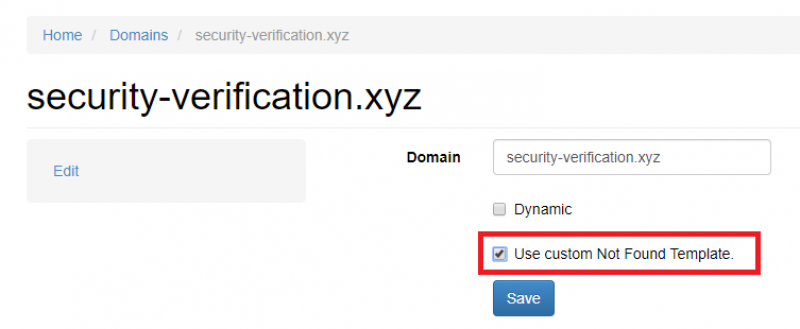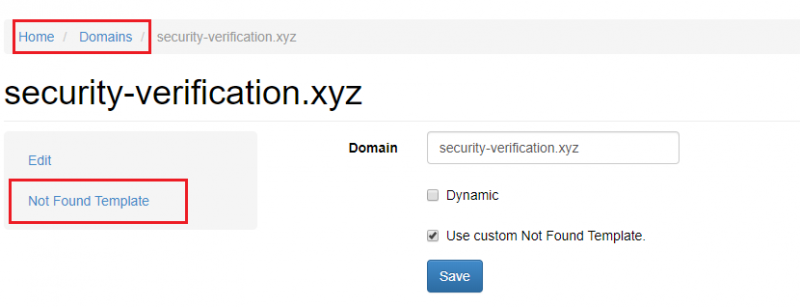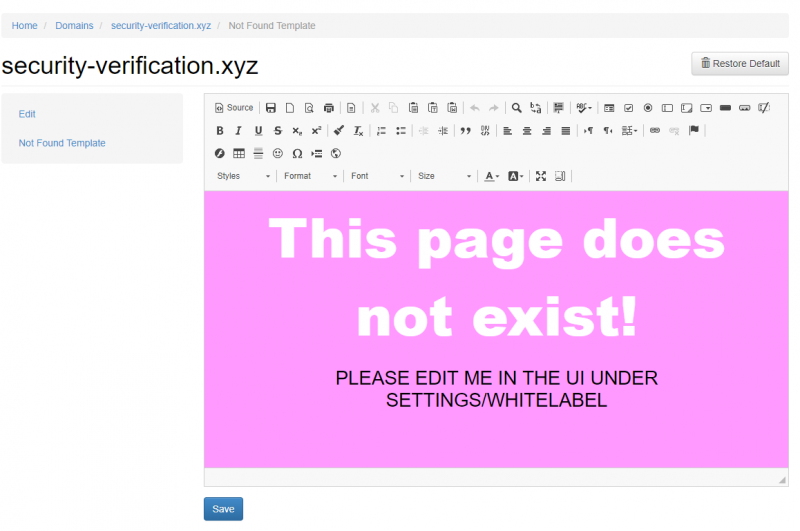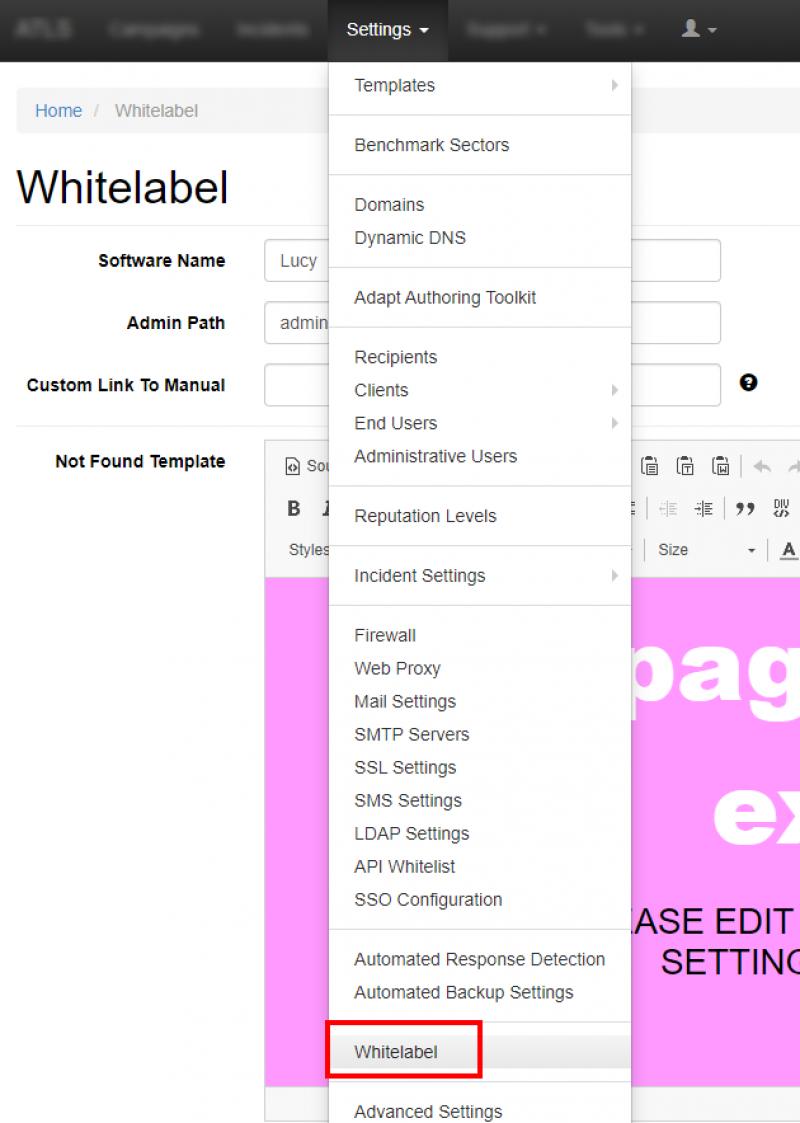Table of Contents
Background Info
When doing a phishing simulation users will receive a random link send within a campaign that might look like this: https://phishing.does-it.net/a5b371863fc2d6b5e2bf2bc2199597135f3db17c9a9194247002ae86e24c75ff/. If a user will enter just the domain name in the browser to see what is running behind that link (e.g. https://phishing.does-it.net/) he will get a 404 error. Here is a sample 404 page:
Customize Error (Globally)
If you don’t want LUCY to expose itself (e.g. when the user accesses the LUCY administration domain name or IP), you can define a global custom error message in the settings under settings/whitelabel. This error message will appear as a customized 404 (not found page).
Customize Error (per domain)
When you save a new domain in LUCY you have the ability to define a custom 404 or homepage for that specific domain. Please click on "Use the custom Not found template and then save" within the domain setting:
 Next, click on “Not Found Template”
Next, click on “Not Found Template”
 Here you are
Here you are

You will be able to set your custom 404 for this domain which will overwrite the global 404 settings. If you want to embed an image you can do this with a img tag that points to the external image on a 3rd party server (e.g. <img src=http://www.yourserver.com/img.jpg>).
If you don't want to use the global 404 template (defined under settings/not found templates), then please enable the checkbox within the custom error page:
Issues
The 404 pages only work with domain names, not IP's
Create an "error" page that redirect the user to a different website
If you want to display an error for a few seconds and then redirect the user to an existing website, you could save a html header in the not found template. In this case the user gets redirected to www.example.com after 3 seconds:
<!DOCTYPE HTML> <html lang="en-US"> <head> <meta charset="UTF-8"> <meta http-equiv="refresh" content="3; url=http://example.com"> </head> <body> This is an error page. If you are not redirected automatically, follow this <a href='http://example.com'>link to example</a>. </body> </html>


